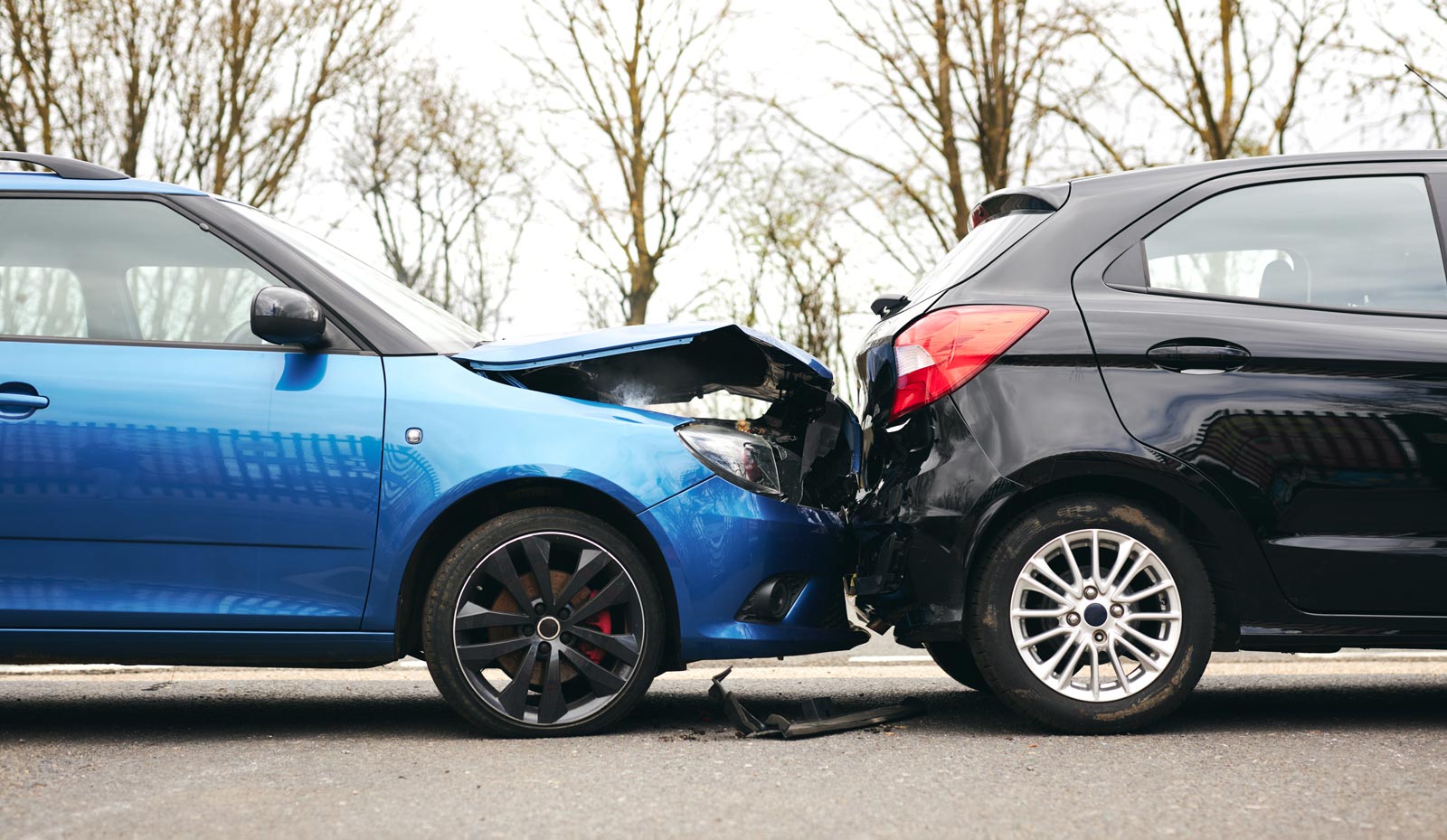Car accident settlements are rarely quick and easy affairs. While some cases might settle in just a few months, 18 months is fairly typical—and others can last even longer.
Although the facts of the case (and the obligations of the insurance company) might seem obvious enough to you, the settlement process will take some time—especially if you’re making a significant insurance claim or liability is contested.
In this blog post, our San Antonio car accident lawyers take a closer look at the car accident settlement process—all the way through to your final check—and what you can expect along the way.
How Long Does the Car Accident Settlement Process Take on Average?
There are really two separate parts to this question that we need to discuss in greater detail:
- How long does it take between hiring an attorney and getting your settlement?
- Once you’ve reached a settlement, how long do you have to wait to get your check?
Let’s start with the first point. In our experience, a typical car accident claim can take around 18 months to settle. However, “average” is a little misleading here. Really, your case might last anywhere from around 6 months to 2 years or more. A lot depends on the circumstances: The simplest cases might be done in just a few weeks, while the most difficult can last years—and a car accident lawyer can make a big difference.
For example, we represented a young man who was hit by a delivery driver while walking through a neighborhood. He suffered catastrophic injuries and spent 20 days in a rehabilitation hospital. While most cases of this complexity take more than two years to litigate, we used our expertise and reputation to negotiate a $9 million settlement in less than a year and a half.
On the other hand, we settled a major case for the family of another young man who was hit by a commercial vehicle while riding his bike. Due to a variety of complicating factors, this case took three and a half years of hard work, and nearly went to trial, before we reached a confidential settlement.
In our experience, a typical car accident claim can take around 18 months to settle. However, “average” is a little misleading here. Really, your case might last anywhere from around 6 months to 2 years or more.
We wish that our clients didn’t have to wait so long to get justice. But if you’re worried that you won’t be able to hold out for a fair settlement, talk to your lawyer about it. While your case is ongoing, our attorneys work with hospitals, insurers, and other creditors to keep the bill collectors and harassing phone calls on pause until you receive your settlement or jury award.
Now, the second question: once you settle, it will usually take about 60 days to get a check in your hands, or sometimes longer if liens (especially government liens) are involved. We’ll go over why it takes so long later in this post, but first, let’s talk about the whole settlement process from the start.
Once you settle, it will usually take about 60 days to get a check in your hands, or sometimes longer if liens (especially government liens) are involved.
Understanding the Timeline of a Lawsuit
In most personal injury cases, settlement negotiations begin very early. There are three common stages in a personal injury lawsuit, although it’s important to understand that the sides can settle at any point in the process.
Pre-Litigation Phase
At the very start of your case, your car accident lawyer begins to investigate your injury claim. This will involve things like gathering evidence at the scene, working with an accident reconstructionist, following-up with eyewitnesses, and gathering other evidence (including your medical bills, treatment plan, and record of lost wages)
Eventually, your lawyer will make a settlement demand to the insurance company. Often this begins several rounds of negotiation between the car accident attorney and the insurance adjuster.
In our experience, about 80% of cases settle in the pre-litigation phase, without needing to sue anyone. However, this can still last several months depending on the circumstances of your case (see below for more insight).
Litigation Phase
If both sides are not able to agree on a settlement amount, your lawyer will file a complaint with the court. In other words, they sue the at-fault driver and their insurance, and a car accident lawsuit begins.
During this stage, you’ll participate in discovery (a formal process where you share information with the other side), attend hearings, and continue settlement negotiations. As the trial date approaches, the sides may try to work with a mediator to resolve their differences or choose to settle their case via an arbitrator rather than a jury trial.
Trial and Appeals
Your lawyer presents your evidence and arguments to a judge and jury, who ultimately will make a ruling about your car accident case—including whether you win or lose, and how much you receive if you win.
If either party disagrees with the verdict, they may be able to file a series of appeals.
How Long Does It Take to Get Money After a Settlement?
Once the insurance company finally agrees to a personal injury settlement, most victims are eager to wrap up their case, receive their compensation, and start using that money to address their medical bills and other costs.
However, the settlement process isn’t as simple as the insurance company just dropping a check in the mail. While most personal injury settlements in Texas finalize within about 60 days, the process to get there can be a bit complex. Fortunately, if you know what to expect, you’ll find this process a lot easier to navigate.
Step 1: Signing Releases and Other Documents
Once you reach a settlement with the insurance company, the lawyers typically draft a series of release forms. Depending on your circumstances, your release forms might be relatively simple, or they might contain detailed terms and conditions that your attorney will have to read over very carefully.
Sometimes, parties negotiate back and forth about the terms of the settlement. After these negotiations finish and the release forms reach their final state, you will have to review and sign them before your settlement can proceed.
Step 2: The Insurance Company Processes Your Release and Cuts a Check
Once the insurance company receives your signed release forms, it should process them and issue a settlement check. Usually, they’ll make this check payable to both you and your attorney and then send it to your attorney.
While this process should run smoothly, insurance companies sometimes delay payment for various reasons, including flat-out clerical errors. If you experience prolonged delays while waiting for your settlement check, you should contact your lawyer for assistance.
Step 3: Your Lawyer Deposits the Insurance Check in an Escrow Account and Pays Your Liens
Upon receipt, your attorney will deposit the insurance check into a special trust or escrow account. This is only temporary, and it’s not your attorney’s decision—it’s a mandatory part of the settlement process under State Bar of Texas rules. Once the settlement check clears, your lawyer will distribute your settlement money.
Usually, your lawyer will have to use some of your settlement money to settle various unpaid debts (also called liens). For example, your lawyer might have to send portions of your settlement money to:
- Medical providers with unpaid bills
- Your health insurance company, if they paid for accident-related medical treatment
- Texas Child Support Division, if you have unpaid child support
- Texas Medicaid, if it covered accident-related medical care
- Medicare, if it covered accident-related medical care or you meet the criteria for a Medicare Set-Aside
It’s important to resolve these liens right away with your settlement funds. If you ignore liens from medical providers, government agencies, or insurance companies, you might face serious penalties. If you have questions about any liens and how they relate to your personal injury claim, you should schedule an appointment with your lawyer to discuss them.
A good attorney will also work hard to reduce what you owe to medical providers and other creditors whenever possible, particularly if your settlement was limited by the amount of insurance coverage and can’t cover your outstanding bills.
For example, we recently represented a crash victim who had $44,000 in medical bills, but the maximum insurance coverage was only $30,000. After the settlement agreement, we were able to negotiate her debt down to less than $10,000, ensuring that she wouldn’t be left empty handed after paying her bills.
Step 4: Your Attorney Will Deduct Legal Fees and Costs
After your lawyer pays any liens, they’ll deduct legal fees and costs from your settlement. Your lawyer’s fees will amount to a certain percentage of your settlement as set forth in the attorney-client contract signed by you at the beginning of your case.
Meanwhile, your legal costs and expenses will depend on lots of factors that are unique to your case. The total will include costs associated with:
- Gathering medical records and other medical evidence
- Paying expert witness fees
- Paying deposition and court reporting costs
You should always get an itemized statement detailing your legal costs. And, if you have any concerns about your costs, make sure you discuss them with your personal injury lawyer.
Once all your liens and fees are deducted, you should receive the rest of your settlement money.
Why Is My Car Accident Settlement Taking So Long? 4 Factors That Can Affect How Long It Takes to Settle
Generally, the more complex and catastrophic your injuries, the more time your claim will take. At Crosley Law, our auto accident lawyers strive to handle our clients’ cases as efficiently as possible. However, some factors can slow down even the most efficient and aggressive lawyer.
1. You Need Extensive Medical Treatments and Multiple Surgeries
We always recommend that our clients reach maximum medical improvement (MMI) before settling. MMI occurs when your medical conditions will no longer improve with treatment, and you’ve reached your “new normal.”
It can be risky to settle your case before this point, simply because it’s much harder to make an accurate estimate of your future medical care and rehabilitation costs. If you’re facing a difficult recovery that involved intense rehabilitation, multiple surgeries, and complex medical issues, it will take longer to value your injuries properly. This also is true if you suffer complications, like a failed surgical repair or infections, during your recovery.
Your lawyer should carefully track your recovery, medical care, and your specific needs. They may also consult with medical and life planning experts to help speed up the process of assessing your injuries and calculating your damages.
2. There Are Legal or Factual Issues With Your Case
When an insurance company evaluates a claim and decides how much money it is willing to pay out, they carefully consider the facts and law surrounding a case. If the insurance company has defenses or your evidence is weak, the insurer will offer you a tiny settlement or deny your claim completely.
For example, if there’s any question about who is at fault in the car crash, your case will probably take longer to settle—particularly if it means there are multiple insurance companies involved. There may be multiple at-fault parties, such as the other driver, their employer, or even the manufacturer of a part that failed.
Other times, the insurer may question your credibility, claiming that you’re not as injured as you say. They may even hire private investigators to track your activities. Or, they’ll try to reduce your compensation through unfair victim-blaming.
You’ll need an experienced trial lawyer who knows how to respond to these allegations, build up your evidence, and fight back. Our team has seen almost every insurance company tactic in the book, from focusing on pre-existing conditions to hiring biased “independent” medical examiners. We can help you respond to these strategies and outmaneuver the insurance company.
3. You Have a High-Value Injury Claim
Small car accident claims that involve minor injuries often settle quickly. However, when the insurance company knows you have an expensive claim, they’re more likely to use drastic measures and delay tactics to slow your claim down. Many times, catastrophic injury claims settle right before or during the trial.
In these cases, mediation and alternative dispute resolution are often beneficial. During mediation, a neutral party (usually a specially trained lawyer) will help the parties negotiate, looking for common ground. We’ve found that mediation is a powerful tool; Crosley Law has a history of mediating record-breaking auto accident settlements.
4. You’re Unrepresented
When you don’t have a lawyer, the insurance company has the advantage. They have extensive experience fighting personal injury claims, and they have the time and resources to wait you out.
Sometimes, they’ll draw out a claim by ordering countless medical records, sending you to multiple medical exams, and avoiding your phone calls, hoping that you’ll give up and take an unfair settlement. Other times, they’ll just slow walk everything until the clock runs out on the statute of limitations—at which point you’ll lose the right to sue.
Hiring a good attorney as soon as possible helps you level the playing field and ensures you don’t miss critical deadlines or make preventable mistakes when dealing with an adjuster.
When Should I Settle My Claim?
We know that most people are anxious to settle their injury claim, particularly if medical expenses are piling up and they can’t work. That’s why we work hard to get our clients a fair settlement as quickly as realistically possible.
But before you accept the insurance company’s initial settlement offer, do your due diligence and consider the long-term impact of your decision.
After a wreck, the insurance company may pressure you to settle quickly and without a lawyer. However, that may not be in your best interest. It’s not a good idea to settle your claim until you truly understand the extent of your injuries, your ability to return to work, your future medical needs, and other factors. While accepting that offer might provide quick and easy short-term relief, it could put you right back where you started when the money dries up.
Even if it takes a bit longer, a fair settlement will always be better than a quick settlement. When you settle, you also give up the right to seek more money later. If it later turns out that your long-term care needs or lost wages are far greater that your settlement can cover, you don’t get a do-over.
In short, you should settle only when the offer represents what you truly deserve under the circumstances. Your personal injury attorney can help you figure out how to deal with expenses and bills while your case is pending.
What Happens if My Settlement Gets Seriously Delayed?
As we mentioned before, most injured victims receive their settlement funds within about 60 days from the end of negotiations. However, additional delays can happen, particularly if there are a significant number of liens that must be resolved.
If your settlement gets delayed extensively and you’re wondering what’s going on, you should contact your personal injury lawyer. Your lawyer should be able to at least explain the delay and might even be able to resolve it. And he or she might be able to give you options that could expedite your payment. For example, your lawyer might agree to issue a partial settlement payment, retaining a portion of the settlement proceeds while he or she negotiates your liens.
A Word About Structured Settlement Payments
On rare occasions, a personal injury claim gets paid through a structured settlement, which is an arrangement that involves the victim receiving portions of their settlement over time. Typically, these structured settlements occur when the victim is a minor or has a catastrophic injury claim that involves ongoing, expensive medical and nursing care.
Usually, a structured settlement involves the insurance company funding an annuity for the victim. An annuity is a type of insurance contract that pays out guaranteed amounts on a fixed, regular schedule. For example, if you received a structured settlement, your annuity might pay you a portion of your settlement every month, every year, or every few years.
Structured settlements might sound sensible, but they can involve a level of risk for the victim. Certain annuities are only payable during your lifetime, which means that once you die, all annuity payments stop. If you’re concerned about this happening, you and your lawyer should carefully review and discuss the terms of your proposed structured settlement.
Crosley Law Firm: We Fight for Personal Injury Victims in Texas
Settling an auto accident claim or other personal injury claim is a complicated process. Without experienced legal representation, you might undervalue your personal injury case, forfeit important rights, and experience frustrating delays.
At Crosley Law Firm, we pride ourselves on our attention to detail and our aggressive, effective approach to representing victims injured in car accidents. If you have questions about any aspect of a personal injury settlement, complete our online contact form or call us at 210-LAW-3000.
The content provided here is for informational purposes only and should not be construed as legal advice on any subject.









